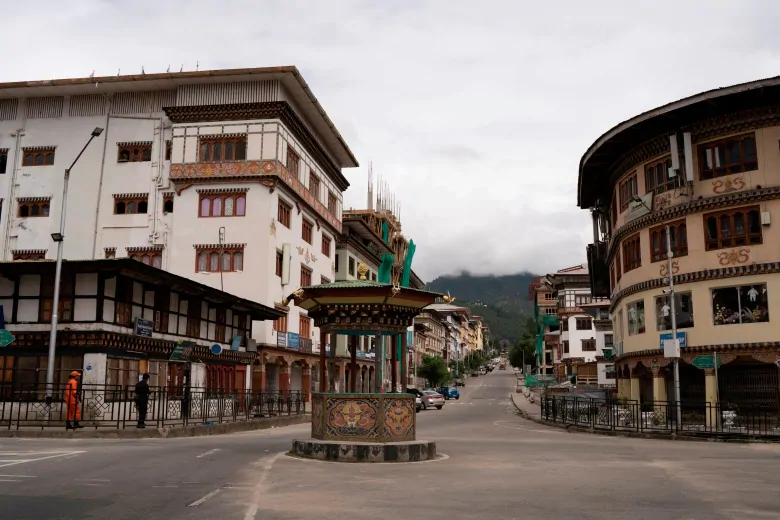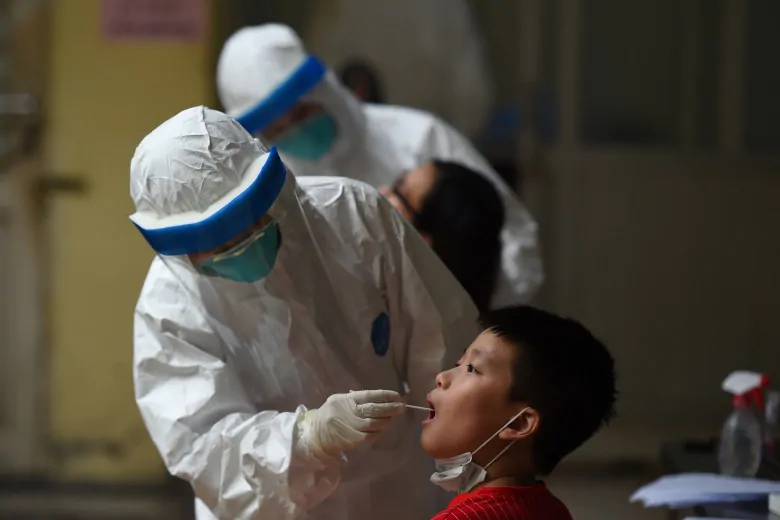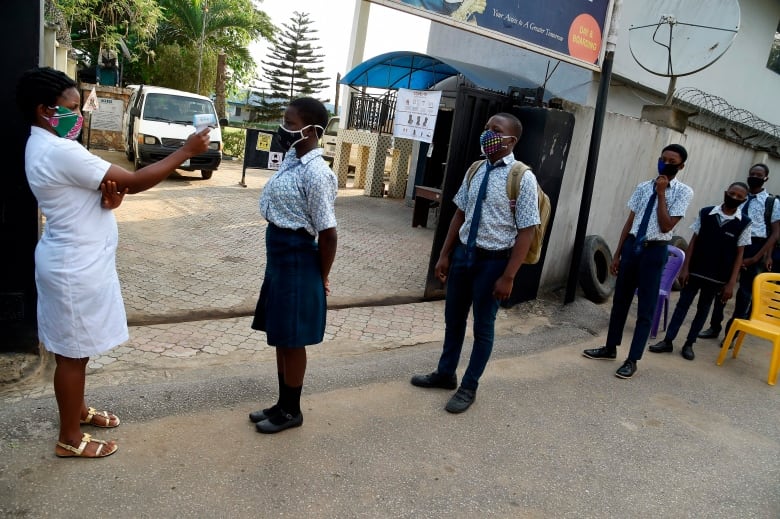The latest:
UN Secretary General Antonio Guterres is warning that the COVID-19 pandemic not only threatens gains in fighting global poverty and building peace but risks exacerbating existing conflicts and generating new ones.
He told a Security Council meeting on the challenge of sustaining peace during the pandemic that his March 23 call for an immediate ceasefire in conflicts around the world to tackle the coronavirus led a number of warring parties to take steps to de-escalate and stop fighting.
“Yet, regrettably, in many instances, the pandemic did not move the parties to suspend hostilities or agree to a permanent ceasefire,” Guterres said.

His predecessor as secretary general, Ban Ki-moon, told the council: “It is truly astonishing that in response to this pandemic, the world has placed billions of people under lockdown, closed international borders, suspended trade and migration and temporarily shut down a whole variety of industries — but has not managed to suspend armed conflicts.”
Ban criticized the UN Security Council for wasting valuable months “in arguments over the details of the text” and not adopting a resolution until July 1 demanding an “immediate cessation of hostilities” in key conflicts, including Syria, Yemen, Libya, South Sudan and Congo, to tackle COVID-19.
“This has weakened the message that this council needs to send to all warring parties: now is the time to confront our common enemy,” Ban said.
And he said delayed council action “further aggravated the current volatile global security situations.”
WATCH | Questions pile up about safety issues with schools about to open:
“The impact of COVID-19 on conflict-affected settings has been much worse than initially thought,” said Ban, who is a co-chair of the group of prominent world leaders founded by Nelson Mandela known as The Elders.
He pointed to health and humanitarian ramifications, social cohesion, governance, the rule of law and threats to multilateralism, which are jeopardizing ongoing efforts to sustain peace, “or may even cause a reversal in hard-won peace and security gains to date.”
He also warned that the economic impacts of the pandemic “will be both long-lasting and severe, with ripple effects for many fragile and conflict-affected states.”
As examples, Ban said Lebanon’s political and economic crisis, exacerbated by last week’s deadly explosion at Beirut’s port, is being compounded by COVID-19’s impact on two key money-earners, tourism and trade, while Iraq’s budget is being stretched thin because of the collapse in oil prices.
Guterres said the pandemic has raised growing questions about the effectiveness of health systems, social services, trust in institutions and systems of governance.
“All of this means that our commitment to sustaining peace is more urgent than ever,” he said.
Guterres pointed to three key dangers: erosion of public trust, destabilization of the global economic order, and weakening of “the social fabric.”
“The perception that authorities are mishandling the crisis, or not being transparent or favouring political allies can lead to public disillusion in government and its institutions,” he said.
What’s happening with coronavirus in Canada
As of 5 a.m. ET on Thursday, Canada had 120,844 confirmed and presumptive coronavirus cases. Provinces and territories listed 107,148 of those as recovered or resolved. A CBC News tally of deaths based on provincial reports, regional health information and CBC’s reporting stood at 9,044.
CBC News has obtained an unredacted copy of a lawsuit launched by an anti-vaccination advocacy group against the government response to the coronavirus crisis, the details of which can now be independently verified and publicly reported for the first time.
The lawsuit was filed by Aylmer, Ont.-based Vaccine Choice Canada and seven individuals in the Ontario Superior of Justice in Toronto on July 6. The legal action is a challenge under Canada’s Charter of Rights and Freedoms to the country’s pandemic response measures, including compulsory face masks, the closure of businesses and the enforcement of physical distancing.
WATCH | Learning lessons from other countries as provinces adjust back-to-school plans:
The plaintiffs are suing the governments of Canada and Ontario, the City of Toronto, senior politicians, a number of local Ontario health authorities, health officials and the CBC over their response to the pandemic.
The suit states that the closure of businesses to prevent the spread of the virus was “extreme, unwarranted and unjustified,” that self-isolation measures imposed on individuals were “not scientific, nor medically based nor proven” and that the mandatory wearing of face coverings in some public spaces imposes “physical and psychological harm.”
The lawsuit alleges that the measures violate Sections 2 (right of association), 7 (life, liberty and security of the person), 8 (unlawful search and seizure), 9 (arbitrary detention of enforcement officers) and 15 (equality before and under the law) of the charter.
Here’s what’s happening around the world
According to Johns Hopkins University, the global total of confirmed coronavirus cases is now more than 20.6 million. Over 749,000 people have died and 12.8 million have recovered.
New Zealand officials were scrambling to trace the source of an outbreak of the coronavirus, reporting 13 new cases on Thursday, as long queues of people formed to escape a renewed lockdown in the country’s biggest city and be tested.
The discovery of four infected family members in Auckland two days ago shocked a country that had not recorded a case of COVID-19 for more than three months, raising some criticism of the government’s handling of the crisis.
With the announcement, New Zealand has a total of 36 active cases.
WATCH | Coronavirus pops up again in New Zealand:
The Philippines plans to launch clinical trials for a Russian coronavirus vaccine in October, with President Rodrigo Duterte expected to be inoculated as early as May next year, presidential spokesperson Harry Roque said on Thursday.
Roque made the announcement a day after Philippine scientists met with representatives of the vaccine developer, research facility Gamaleya, to discuss trials and information about the inoculation.
Russia on Tuesday became the world’s first country to grant regulatory approval for a COVID-19 vaccine, to be named “Sputnik V” in homage to the Soviet Union’s launch of the world’s first satellite.
The Himalayan kingdom of Bhutan has imposed its first nationwide lockdown due to a virus infection in a returning traveler who had been released from quarantine

The government issued a stay-at-home order for its approximately 750,000 people, and all schools, offices and commercial establishments were closed.
The government’s statement said the lockdown would be enforced from five to 21 days “to identify and isolate all positive cases, immediately breaking the chain of transmission.”
South Korea has reported 56 new cases of the coronavirus as clusters continue to pop up in cities.
The figures announced by South Korea’s Centres for Disease Control and Prevention on Thursday brought the caseload to 14,770 infections, including 305 deaths.
Forty-three of the new cases were from the Seoul area and two were from Busan, the country’s second-largest city, where infections have been reported at schools and among foreign cargo ship workers.
Vietnam’s health ministry reported 25 more coronavirus infections and three additional deaths on Thursday, bringing the total number of cases in the Southeast Asian country to 905, with 20 fatalities.
More than 430 of the total cases are linked to the central city of Danang, where the new outbreak began late last month.

The ministry said 133,340 people are being quarantined in the country, including 5,361 at hospitals, 25,043 at centralized quarantine centres and the rest at home.
The coronavirus outbreak centred in Melbourne, Australia’s second-largest city, showed a decline in new infections Thursday, though the state’s leader urged continued vigilance.
Victoria state Premier Daniel Andrews said there were 278 new infections and eight new deaths, down from around 700 daily at the peak of the outbreak.
New local cases in China fell into the single digits, while Hong Kong saw another rise in hospitalizations and deaths.
The National Health Commission said Thursday eight new cases were registered in the northwestern region of Xinjiang. Another 11 were Chinese returning from overseas.
Hong Kong reported 62 new cases, up from 33 the day before, along with an additional five deaths.

The semi-autonomous Chinese city has required masks be worn in public and limited restaurant dining among other measures to curb a new outbreak.
An Africa wide study of antibodies to the coronavirus has begun, while evidence from a smaller study indicates that many more people have been infected than official numbers show, the Africa Centres for Disease Control and Prevention said Thursday.
Experts are eager to know the real number of COVID-19 cases in Africa, as confirmed cases and deaths have been relatively low on the continent of 1.3 billion people. Poor data collection, however, has complicated efforts.
But recent surveys in Mozambique found antibodies — proteins the body makes when an infection occurs — to the virus in five per cent of households in the city of Nampula and 2.5 per cent in the city of Pemba. That’s while Mozambique has just 2,481 confirmed virus cases. Further studies are underway in the capital, Maputo, and the city of Quelimane.
Prosecutors in Rome have formally told Italian Premier Giuseppe Conte and other ministers they have opened an investigation into the government’s coronavirus response.
A statement Thursday from Conte’s office notes such investigations are required when complaints are received. However, prosecutors have already informed the government that it considers the claims “unfounded and worthy of being shelved.”
Italy was the first country in Europe to become the epicentre of COVID-19 and has a confirmed death toll of more than 35,000, now sixth-highest in the world.





More Stories
Allegations of corruption Qatar warns of ‘negative impact’ of European measures
USA: Famous “Hollywood cat” euthanized in Los Angeles
The campaigner who called for the shooting of Ukrainian children has not been charged